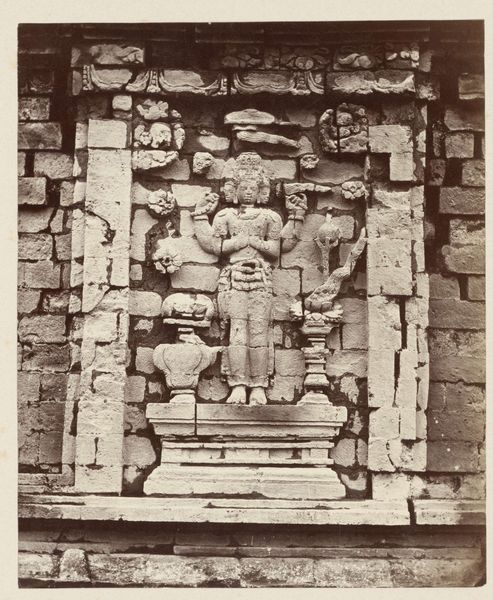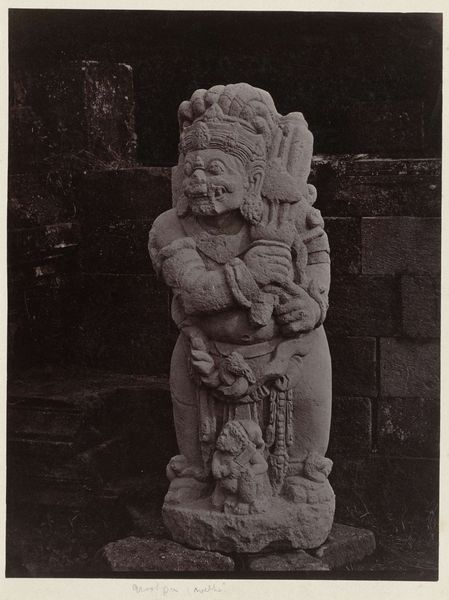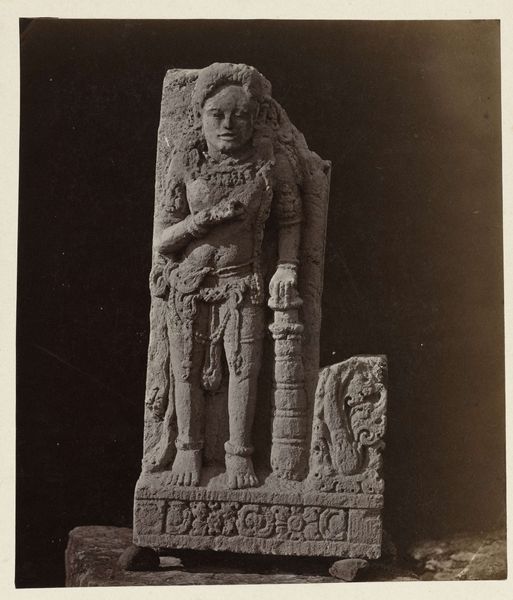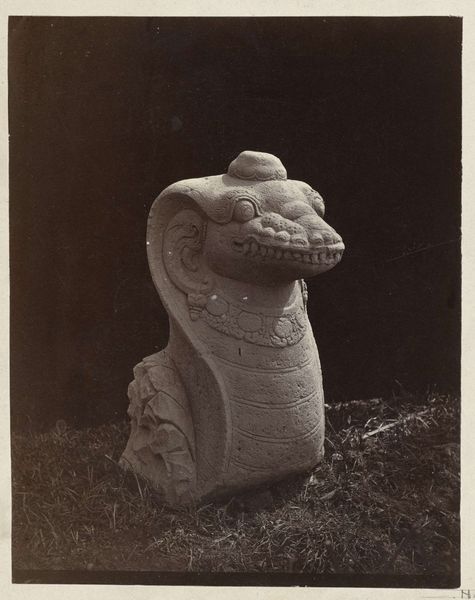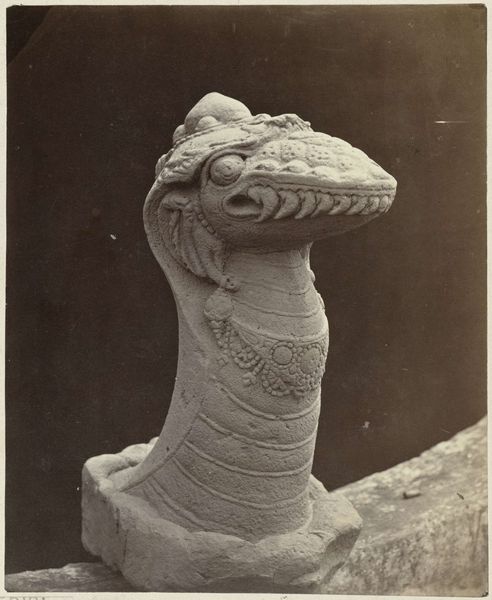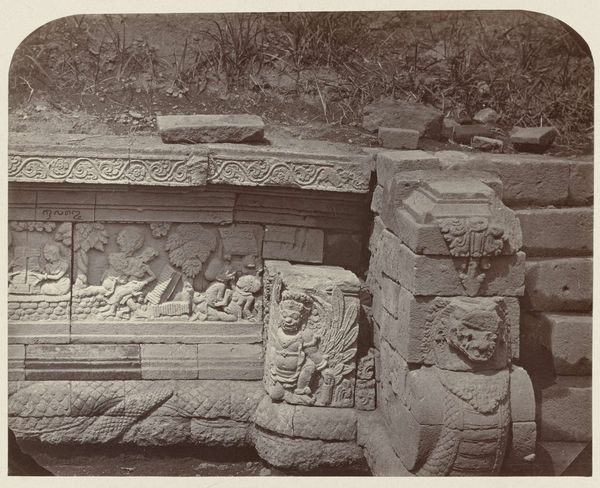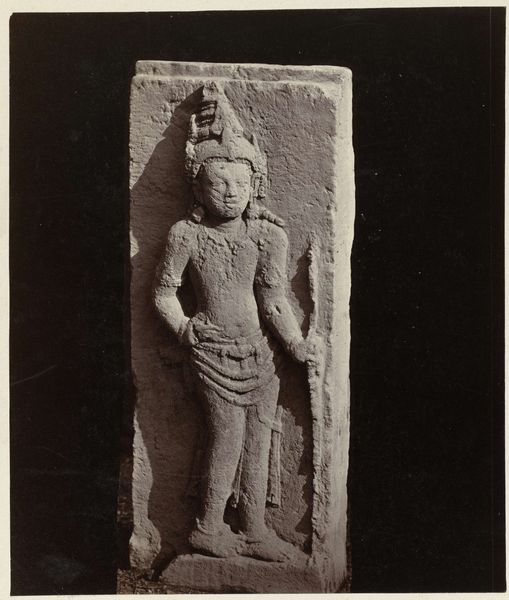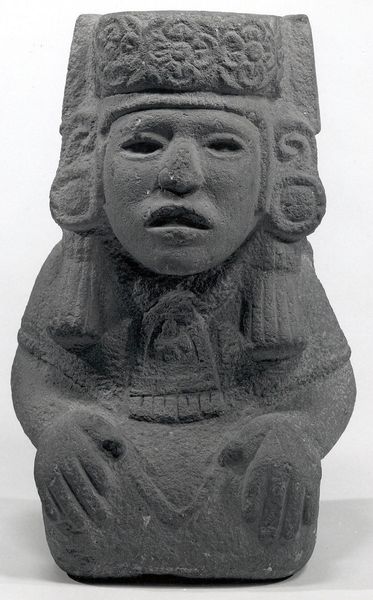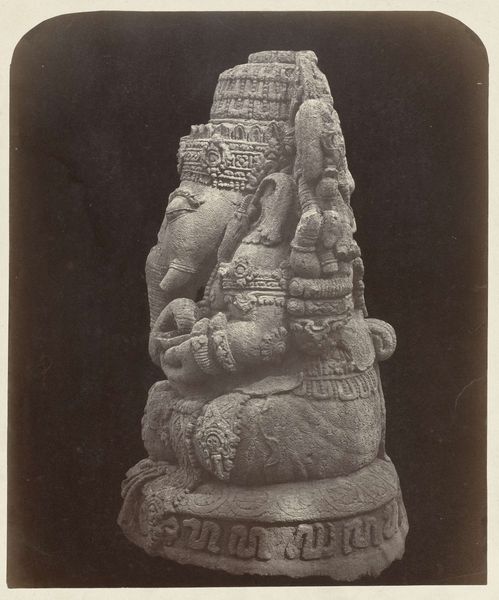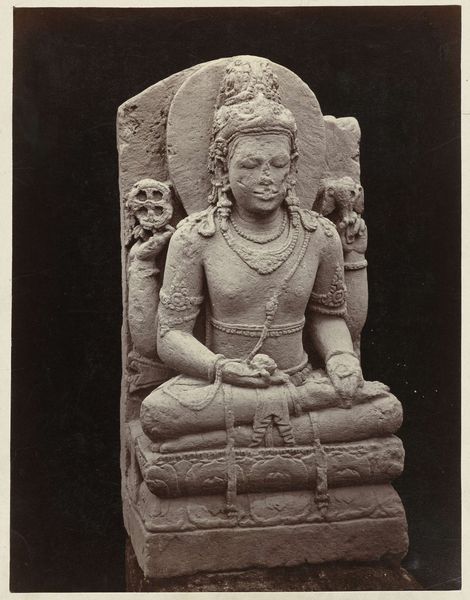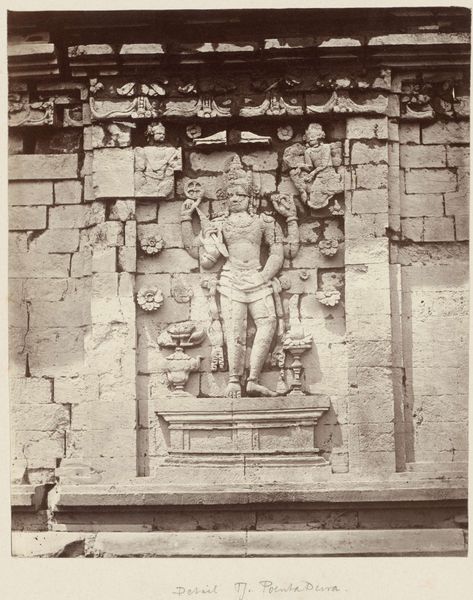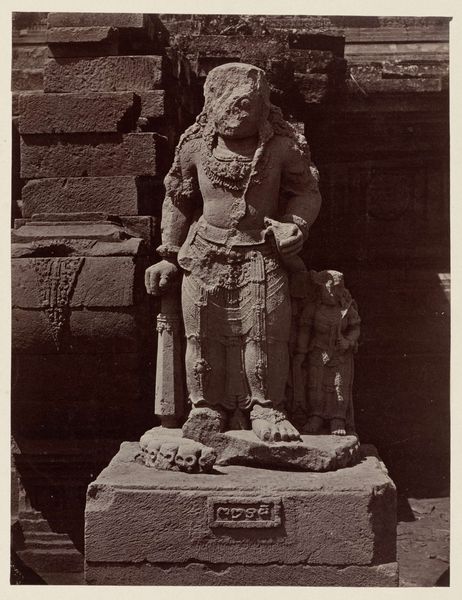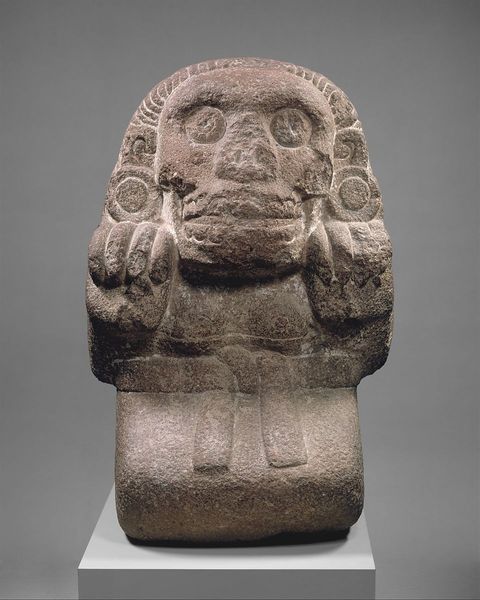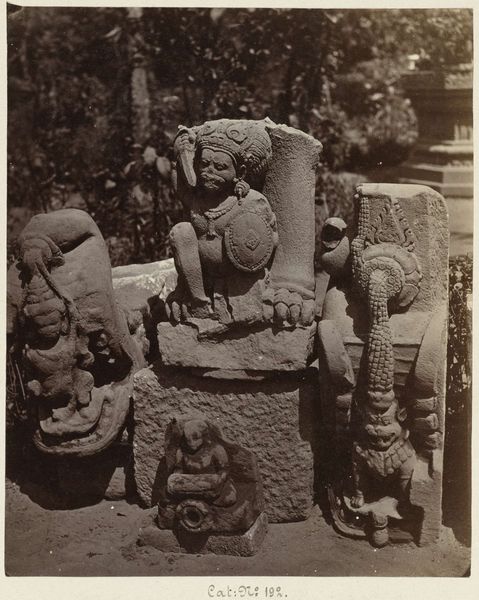
Beeld in de vorm van een leeuw aan de voet van een trap bij de Borobudur. Possibly 1873 - 1879
0:00
0:00
photography, sculpture
#
sculpture
#
landscape
#
figuration
#
photography
#
ancient-mediterranean
#
sculpture
#
19th century
Dimensions: height 300 mm, width 240 mm
Copyright: Rijks Museum: Open Domain
This photograph by Isidore Kinsbergen captures a stone lion sculpture at the foot of a staircase at Borobudur. The lion, often a symbol of power and protection, stands guard, its presence deeply rooted in the cultural memory of safeguarding sacred spaces. Consider the ancient Egyptian sphinxes, or even the lions at the gates of Mycenae – all serve a similar purpose of warding off malevolent forces and marking a threshold. This motif transcends cultures, doesn’t it? Yet, here, in the East, the lion assumes a unique inflection, intertwined with Buddhist cosmology. The spiral patterns adorning the lion's mane may unconsciously evoke a sense of cyclical time and rebirth. Perhaps we, as viewers, are drawn to this sculpture not merely by its aesthetic form but by a primeval connection to the protective power the lion represents. A symbol that has resurfaced, evolved, and taken on new meanings across time, continually engaging us on a deeply subconscious level.
Comments
No comments
Be the first to comment and join the conversation on the ultimate creative platform.
